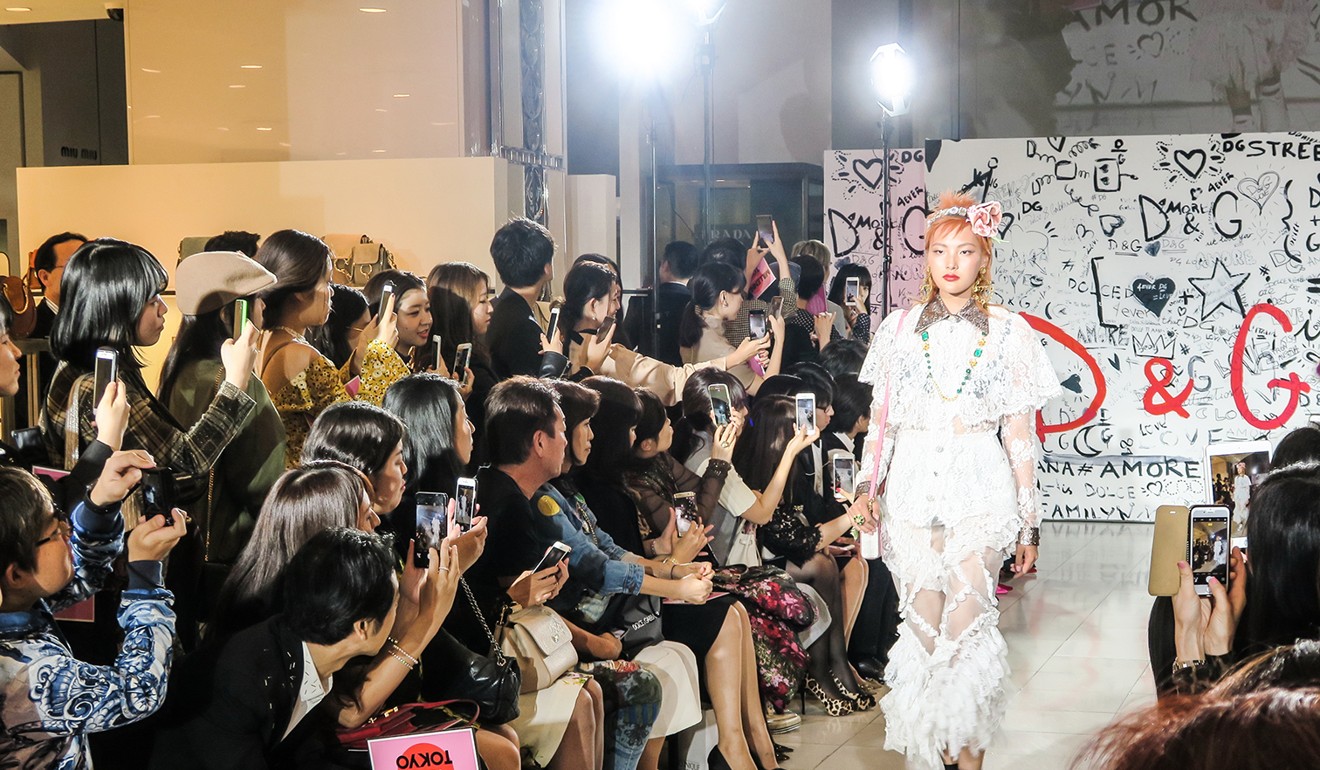
Five more times Stefano Gabbana put his foot in it, from ‘synthetic children’ to ‘ugly’ Selena Gomez
- Dolce & Gabbana’s multimillion-dollar show in China was cancelled after the ‘country of s***’ comment
- He has drawn the ire of Elton John, Miley Cyrus, Zhang Ziyi and Chen Kun among others
Wednesday was supposed to be a big day for Italian brand Dolce & Gabbana. Hundreds of guests from around the world were flown to Shanghai to attend “The Great Show”, a fashion extravaganza that the brand billed a love letter to China.
Things, however, turned out quite differently after the label released a series of videos featuring a Chinese model struggling while eating Italian dishes such as cannoli and spaghetti with chopsticks, which many Chinese internet users found offensive; they were quick to voice their ire on Weibo and Chinese social media.
Lane Crawford and No 1 luxury online retailer drop Dolce & Gabbana
Instagram account diet_prada was the first to publicly call out the brand on Western social media, causing an uproar a few hours later when it published a private conversation between brand co-founder Stefano Gabbana and an American Instagram user who accused the brand of racism.
The brand said that the designer’s account had been hacked, but this is not the first time Stefano Gabbana and his more low-key business partner Domenico Dolce found themselves in hot water due to their loose tongues.
In 2015, in an interview for an Italian newspaper, Domenico Dolce and Stefano Gabbana, who are both gay, expressed their opposition to a child growing with same-sex parents and referred to children born through IVF as “synthetic”.
Celebrities such as Elton John weighed in on the matter. In an Instagram post, the British singer said: “How dare you refer to my beautiful children as ‘synthetic’.
“And shame on you for wagging your judgemental little fingers at IVF – a miracle that has allowed legions of loving people, both straight and gay, to fulfil their dream of having children. Your archaic thinking is out of step with the times, just like your fashions. I shall never wear Dolce and Gabbana ever again. #BoycottDolceGabbana.”
This summer Gabbana bullied none other than Selena Gomez, who is the second most followed person on Instagram. After the Italian Instagram account The Catwalk Italia posted photos of the singer on the red carpet, Gabbana left a nasty comment, which, translated from the Italian reads, “She’s really ugly.” A-listers such as Miley Cyrus came to Gomez’s defence while celebrity stylists such as Elizabeth Saltzman and Karla Welch announced that they would stop using the label’s clothes on their clients.
Also this year, Gabbana triggered yet another backlash when he called Chiara Ferragni, who is arguably the world’s most successful fashion blogger, “cheap” on her wedding day. He once again turned to Instagram to voice his opinion after Harper’s Bazaar UK posted an image of the blogger in her Dior wedding gown.
Last night the blogger commented on the cancellation of the Shanghai show with a short but eloquent five-letter word: “Karma”.
5 fashion slogans that caused controversy
The brand also got in trouble for its #DGLovesNaples advertising campaign, which juxtaposed models clad in expensive Dolce & Gabbana dresses with local Neapolitans depicted as stereotypical peasant workers or pizza makers.
Instead of apologising to his critics, Gabbana once again got into a heated confrontation on Instagram, writing, “I will never come to Naples to advertise you again! Bad people, you are the disgusting of Italy.”
The same thing happened with a similar campaign shot in Beijing, which featured models with taxi drivers, garbage collectors and street vendors, a view that many found stereotypical and insensitive.

In April this year the designers gave an interview to Italian newspaper Corriere della Sera, addressing the future of the company once they were no longer around. “Once we are dead, we will be dead,” Gabbana said. “I don’t want a Japanese designer to design for Dolce & Gabbana.” The offensive remark came a year after the brand had hosted a glamorous fashion show in Tokyo to court their Japanese customers.

